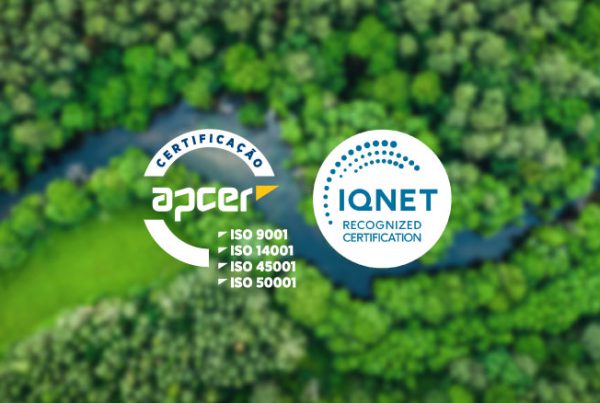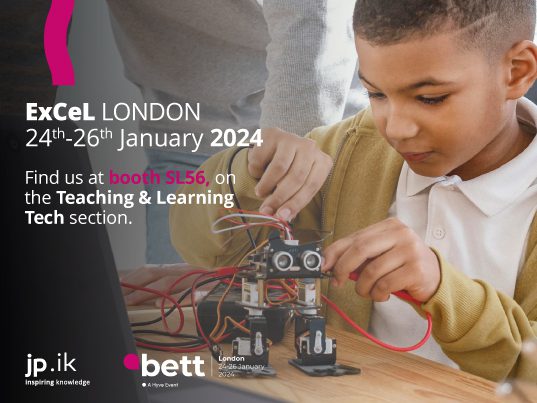Nowadays we have the idea that there are answers to everything and if need them we can just google them. I may agree to a point! However, from another point of view, I believe, there are also more questions.
“How do astronauts pee?†This question came from a twelve-year-old boy in one of my classes. My first instinct – maybe it would have been yours too! – was to tell him off for his boldness or maybe because the question was not related with the class subject and it could be seen as a joke to disrupt the “silence†of the classroom.
However, my reaction was to smile at first because I imagined myself asking this same question, but probably I would not have had the guts to do it, possibly motivated by the fear of the teacher’s reaction or out of fear that my peers would make fun of me.
But the question was not so out of blue, as it could easily be integrated into the subject that was being addressed, which was, in fact, space exploration. In addition, I admire creativity and boldness, so I decided to let it flow. Guilherme, a curious, polite and assertive student, however, had the kindness to prepare me by saying “teacher don’t take my question wrongâ€, a posture that soothes the teacher’s reaction.
As a teacher and as an individual who tries to maintain the magic, wonder and curiosity about life and its mysteries, I do consider these moments very precious, in order to spark children’s joy about learning. The fact is when this kind of challenges are presented by younger children, there is a somewhat maternal leeway, so that they can express themselves, because they are children after all. They are keen to question with creativity and wonder, because they want to know the world.
Nonetheless, when this type of questions come up later, teenagers are seen as silly kids who usually just want to disturb the class, because they should no longer ask this kind of questions.
Students like Guilherme, with an explorer spirit, are, indeed, the reason why I believe in teaching. The curiosity for the surrounding world that drive these young minds is inspiring for me.
The lack of answers for my students, and in a certain way for me, is, without a doubt, my driver. The rewarding feeling of discovering something moves me forward and the freedom of creating more questions and answers makes this an endless cycle.
It is the idea that we are continuously learning, regardless our age, that we have no right to judge or castrate the doubts of others, but to look at them as a constant form of growth (whether self-knowledge or general knowledge), which in my understanding makes people more complete and happy.
We were all children and we have had our own imaginary worlds and in the “real†world. We all also have questions that we hold on to until we find a satisfying, logical answer, whether social or individual, in order to understand and acquire meaningful information, so we can proceed to the next question and the next discovery.
Persistence and humility are also features that throughout our lives we lose or we tend to give up on them, because we are pressured to respond quickly, sometimes even without reasoning. This urgency makes us accelerate our knowledge acquisition processes, which results in knowledge that passes through us, without realizing it, to the point where we miss fantastic opportunities to learn.
We identify in the students this urgency, when teachers spark this same urgency. We, the adults in the equation, are the ones who force this rhythm by imposing a program that must be given in an academic year or by determining that they must be in school for exactly 12 years. When we force them to spend more time answering questions that have already been answered than exploring for new ones.
Children are the best explorers of worlds, and adults force them to let go of their creativity and to shape them to fit in the boxes that already exist, probably because they have lost the connection to themselves and their surroundings.
In order not to get involved in this rhythm, which goes against the creative, imaginative and questioning spirit, I believe there’s a simple action we can take, and it is something I try to apply in my professional and personal daily life. And that is to listen to others, to listen to our children, to listen to our students… just listen… and first of all listen to yourself, without judging the doubts we still have and that we will always have.
“The gift of dreaming made them richer beings than certain grown people constantly stumbling over their grave importance, their pompous seriousnessâ€
Ana Margarida Paleta, born in October 1979, is from Lisbon, but has lived most of her life in Faro.
She was born into a family of teachers and was also fortunate to meet incredible teachers, who influenced her academic journey and who later became an inspiration in her own journey through pedagogy.
Graduated in Physics and Chemistry Teaching (2006), she also has a degree in Drama and Education and some experience in both areas, always seeking to create empathy in some way. She taught in Faro and currently teaches in Lisbon.
Ana collaborated with jp.ik as an external pedagogical trainer, in Angola in 2015 and Kenya in 2016.
She always wanted to be a teacher and as a child she felt that the subject did not matter that much; an idea that she still believes today. Ana chose the area of ​​science, because she understands it a constant challenge, with endless questions and answers. She believes the role of content in the teaching-learning process is to function as a tool for skills acquisition.




